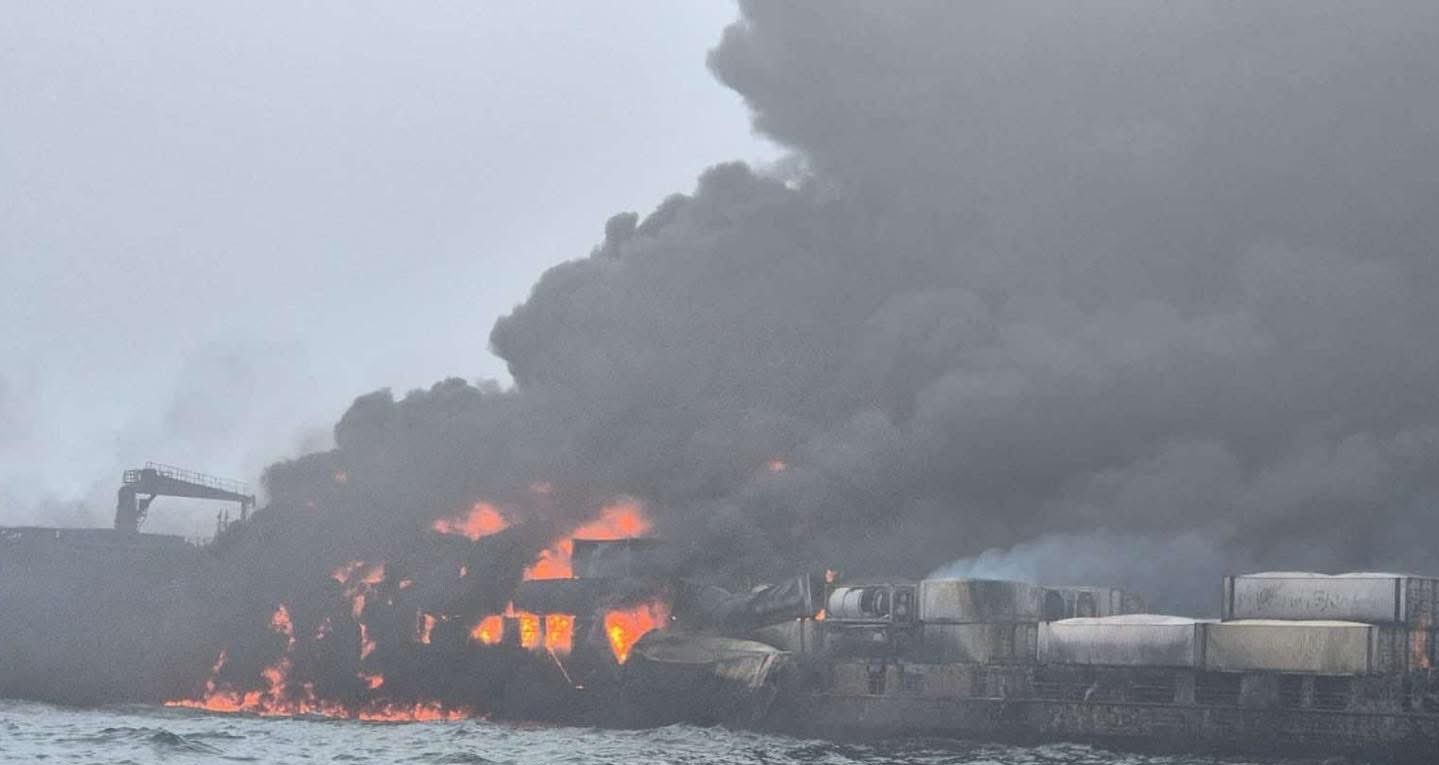Incident in the United Kingdom

Photo credit: X:
Last updated 13 March 2025
An incident involving two vessels carrying hazardous noxious substances has occurred off the east coast of the United Kingdom on 10 March 2025. It is reported that the container ship Solong ran into the oil tanker MV Stena Immaculate, which was at anchor at the time. Following the collision both vessels caught fire. Sadly, one of the crew members of the Solong is missing, and presumed dead. The remaining crew members from both vessels were safely recovered.
Whilst the United Kingdom is a Member State of the International Oil Pollution Compensation Fund, 1992 (the 1992 Fund) and the Stena Immaculate appears to be a ship, as defined in the 1992 Civil Liability and Fund Conventions, according to reports, the tanker was carrying jet fuel, which is a non-persistent oil. Therefore, any claims for compensation in the event of pollution damage resulting from this incident would not be covered by the 1992 Conventions. The IOPC Funds are therefore unable to intervene in this case.
This incident would, however, have been covered by the pending 2010 HNS Convention had the Convention been in force. Unlike the 1992 Conventions, the HNS Convention covers personal injury claims, fire and explosion and incidents involving a wide range of hazardous and noxious substances, including jet fuel.
Additionally, initial reports suggested that that the Solong was carrying containers of sodium cyanide which are also considered HNS under the 2010 Convention. However, in a statement, the vessel’s owner indicated that this information was inaccurate. At this point it is not clear if the Solong was carrying other substances that would be considered HNS under the Convention.
Like the 1992 CLC and Fund Conventions, the HNS Convention establishes a clear liability framework and ensures that funding is in place to provide compensation for clean-up activities, preventive measures, environmental monitoring, property damage, economic loss and loss of life and personal injury that result from the release of HNS from a ship.
 Our Use Of Cookies
Our Use Of Cookies